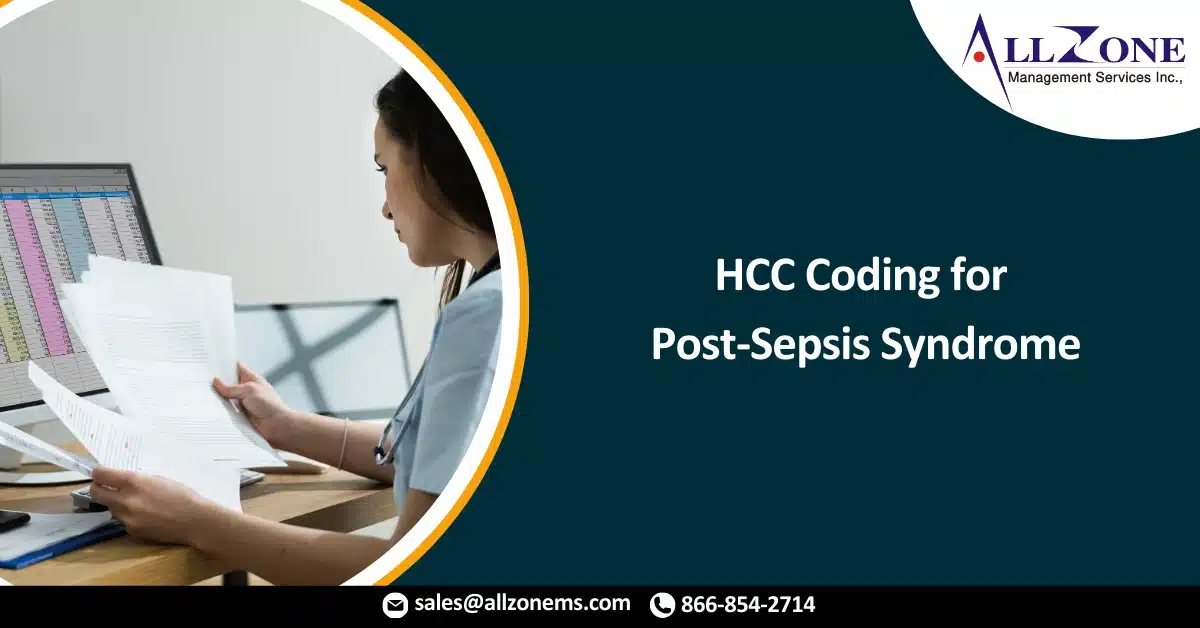hcc medical abbreviation: In medical terminology, “HCC” commonly stands for “Hepatocellular Carcinoma.” This is the most common type of primary liver cancer, which originates in the hepatocytes, the main type of liver cell. It’s important to note that medical abbreviations can vary depending on context, so if you encounter “HCC” in a different context, it’s always good to confirm its meaning in that specific context.
Capture risk adjustment payment for physicians who treat patients with late effects of sepsis.
In the United States, more than 1.4 million people survive sepsis every year. Up to 60 percent of sepsis survivors experience worsened cognitive and/or physical function. Of all sepsis survivors, one third are rehospitalized within three months of the initial diagnosis of sepsis. Of all children who have been diagnosed with severe sepsis, 47 percent are rehospitalized. Older sepsis survivors experience, on average, one to two limitations on their daily activities. A patient hospitalized due to sepsis may experience late effects — post-sepsis syndrome (PSS) — typically lasting three to 18 months. Unfortunately, these late effects are often miscoded because clinicians do not recognize the connection.
Joseph Morris, MD, chief of North Valley Emergency Services at Roseville Medical Center, recognizes this deficiency. “The often-unrecognized condition of post-sepsis syndrome is not well understood or easily recognized as it can mimic a spectrum of other pathologies. Clinicians who familiarize themselves with this condition can empower future workups that may include this syndrome itself or the resultant pathological sequelae that have been described,” Morris said.
What Is Post-Sepsis Syndrome?
Sepsis is an extreme reaction to an infection that can lead to death if untreated. PSS is a pathophysiological response to sepsis that affects up to 50 percent of sepsis survivors. Intensive care unit patients carry a much higher risk. Studies indicate that older patients are at a higher risk for long-term cognitive impairment and physical problems.
Severe sepsis and septic shock can result in hypoperfusion to the extremities, for example, which may lead to limb death and subsequent amputation contributing to the negative impact on activities of daily living (ADL). Amputations can also lead to PSS.
Components of PSS:
- Difficulty sleeping (insomnia)
- Disabling muscle or joint pain (myalgias, arthralgias)
- Organ dysfunction (kidney failure, respiratory problems)
- Difficulty concentrating
- Decreased cognitive functioning
- Depression; post-traumatic stress disorder (PTSD)
Sequelae of PSS may include:
- Physical limitations: ADL, six-minute walk distance, quadricep and handgrip strength, fatigue
- Cognitive impairment: memory, attention, verbal fluency, executive functions
- Mental health effects: anxiety, depression, PTSD, weakness, appetite change
- Recurrent infections: readmission due to infections
- Exacerbation of chronic medical conditions: heart failure, kidney failure, chronic obstructive pulmonary disease (COPD)
- Lower quality of life: unable to return to work or independent living
Comorbidities Cause Complications
Sepsis and PSS are even harder to treat in patients who also have serious chronic conditions. For example:
Diabetes and Sepsis
Management of blood glucose can be more difficult after sepsis, leading to complications from hyperglycemia. Patients with diabetes are also at risk of developing sores that don’t heal well and chronic wounds. When present, these wounds put the individual at a high risk of infection.
People with diabetes are also more vulnerable to bacterial blood infections. And because of the underlying diabetes, infections can get severe quickly. When the infection overwhelms the body, the body may respond by developing sepsis and potentially septic shock, which carries a much higher mortality.
COPD and Sepsis
Sepsis survivors with COPD have a higher risk of severe COPD exacerbations, respiratory infections, and pneumonia. This, in turn, puts them at a higher risk for sepsis recurrence.
CHF and Sepsis
Immediately after discharge, patients with congestive heart failure (CHF) often develop fluid overload. This may require treatment or early readmission. Management of fluid balance can be more difficult in the months following sepsis.
Heart failure can contribute to an altered immune response that may, in turn, increase the risk of developing recurrent infections and subsequent sepsis.
Where to Start?
Proper documentation and coding can aid in making the connection between sepsis and PSS. History codes should either be part of the past medical history or the problem list if the clinician is treating a patient with manifestations of PSS.
Examples:
Z86.19 Personal history of other infectious and parasitic diseases
Z87.09 Personal history of other diseases of the respiratory system
Z89.- Acquired absence of limb
Z94.0 Kidney transplant status
Coding Manifestations
There are many ICD-10-CM codes associated with PSS.
Cognitive function:
G31.84 Mild cognitive impairment, so stated
R41.840 Attention and concentration deficit
Mental/emotional conditions:
F32.- Major depressive disorder, single episode
F33.- Major depressive disorder, recurrent
F43.1- Post-traumatic stress disorder (PTSD)
For categories F32-F33, coding severity is based on the number of symptoms, the severity of those symptoms, and the degree of functional disability.
Physiological conditions:
R53.81 Other malaise
J12.- – J18.- Pneumonia
G89.29 Other chronic pain
R09.02 Hypoxemia
R53.82 Chronic fatigue, unspecified
T87.3- – T87.8- Complications of amputation
Long-term effects from kidney failure:
R60.1 Generalized edema
I12.9 Hypertensive chronic kidney disease with stage 1 through stage 4 chronic kidney disease, or unspecified chronic kidney disease
Z94.0 Kidney transplant status
Accurate and thorough documentation and coding can contribute to the successful management of your patient population. The key to success is a strong physician training program with an emphasis on coding to the highest level of specificity.
For More Information: https://www.aapc.com/blog/50723-hcc-coding-for-post-sepsis-syndrome/

